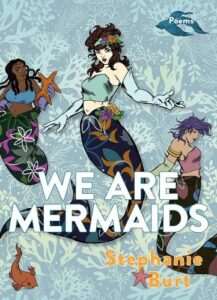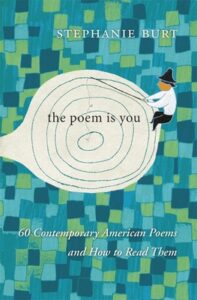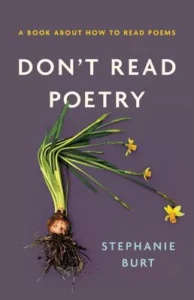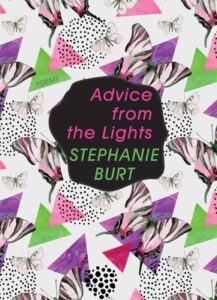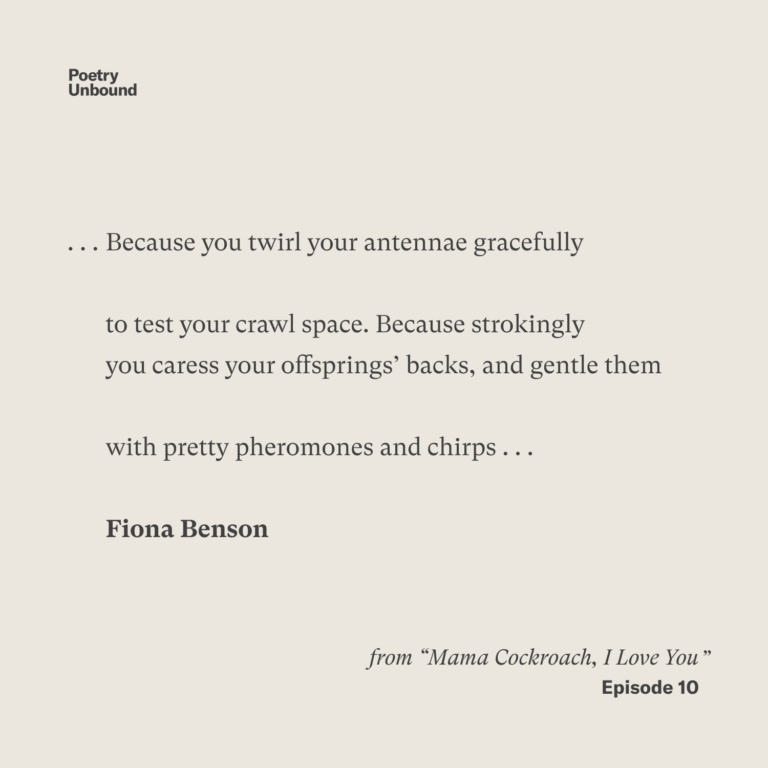Stephanie Burt
Prayer for Werewolves
The search for authentic love is a powerful hunger in humans and, as Stephanie Burt shares, in werewolves.
We’re pleased to offer Stephanie Burt’s poem, and invite you to connect with Poetry Unbound throughout this season.
Pre-order the forthcoming book Poetry Unbound: 50 Poems to Open Your World and join us in our new conversational space on Substack.
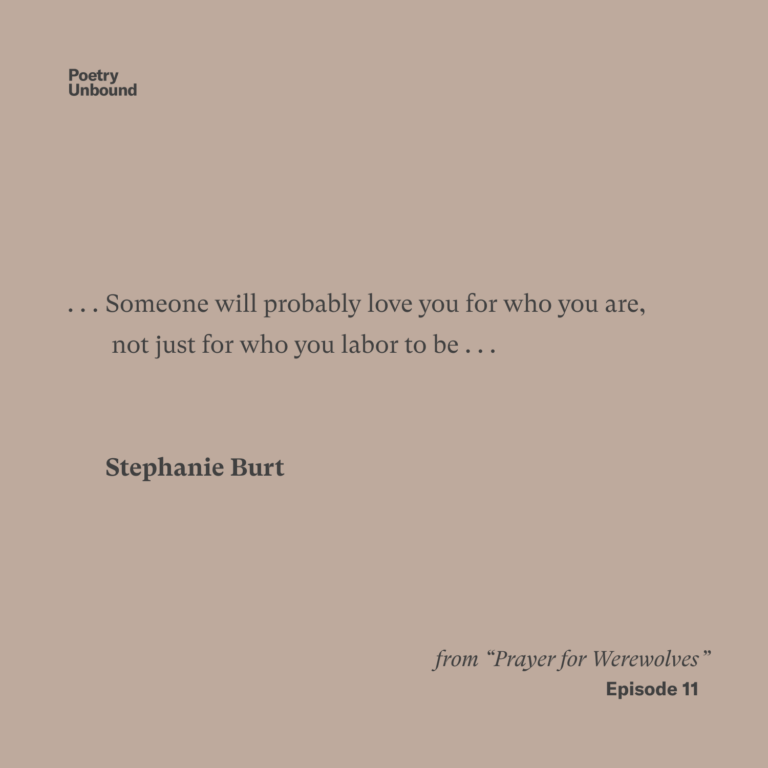
Guest

Stephanie Burt is a poet, literary critic, and professor with nine published books, including two critical books on poetry and three poetry collections. Her essay collection Close Calls with Nonsense was a finalist for the National Book Critics Circle Award. Her other works include We Are Mermaids; Advice from the Lights; The Poem Is You: 60 Contemporary American Poems and How to Read Them; and The Art of the Sonnet. Her writing has appeared in the New York Times Book Review, the London Review of Books, the Times Literary Supplement, The Believer, and the Boston Review.
Transcript
Pádraig Ó Tuama: My name is Pádraig Ó Tuama and I don’t mind scary films, but I had an old housemate Danielle, and she used to hate being frightened, but yet continue to rent out scary films. I used to find it intensely funny and intensely interesting to watch them with her. Partly ‘cause I was watching her watching the film where she continued to watch something that she couldn’t bear to watch. There’s something about coming to the edge of that place, that horror, and coming to terms with that which is not us, coming to terms with your own fear and learning from it.
[music: “Praise the Rain” by Gautam Srikishan]
“Prayer for Werewolves” by Stephanie Burt
“Someone will probably love you for who you are.
If not, you’ll still find friends,
friends who, given time, or given warning,
will probably gather around you, hold your hands,
and wrap you in soft coats and blankets till the violence
inside your body ends.
“Someone will probably love you for who you are,
not just for who you labor to be.
Maybe you’re lost in your skin today. Maybe you’re burning
and wish you could tear it all off. Please don’t. You are variously
a marvel, an athlete, a wilderness, a source of warmth
and a way to learn from fear.
“When you have claws, your claws are yours, your ears
bristle and are yours; your irises
are citrine, pure, and yours. They let you see
through smog and pine thickets and into the future, where
you need no chains to feel secure,
and someone will probably love you for who you are:
“then you will know each other’s scents
and nuzzle or lope together. But for
now, you have friends,
who are not going anywhere. Please
stay here.”
[music: “Family Tree” by Gautam Srikishan]
This is a prayer for werewolves, and a werewolf is a person who at full moon changes into a wolf or some kind of a wolf. You know, someone who’s not quite human. And throughout all kinds of stories a werewolf is an object of fear and wild with a taste for blood and out of control and somehow more linked to the elements than a human person is.
You know, this poem isn’t necessarily talking about a werewolf as a metaphor. It isn’t saying this is how a person can feel like a werewolf living a life today. This is a poem that takes werewolves very seriously. It’s from a book titled We Are Mermaids. And is inviting fantastical creatures into their own brilliance, into their own independence and wildness and eros and power.
And this beautiful, tender prayer for werewolves is almost like a midwifing prayer, trying to usher a werewolf who is not at home in their own fur and claws, who was wondering, ‘am I the only one of the world?’ And this is a prayer, an accompaniment, to say we’re around you, we’ll help you, “and somebody will probably love you for who you are.”
[music: “A Little Powder” by Blue Dot Sessions]
One of the things this poem is doing is pointing to the werewolf and saying, “here’s what I see in you.” And maybe you’re lost in your skin, maybe you want to tear it all off. But then it’s saying, “Look, in the times, when you are a werewolf, you’ve got claws and ears that bristle and those irises, yellow irises that are citrine, and you can see through smog and pine thickets into the future.” And in all of that, it’s saying, “because of all of these things, because of what we can see in you, you don’t need chains to feel secure.”
It’s an amazing way of speaking to the fear of whoever this werewolf is. It is saying there’s something about you in your wild state too that is full of glory, full of possibility that doesn’t need to be chained down, that doesn’t need to be erased, or it doesn’t need to be constricted. Because then, in love, you will know another scent and nuzzle or lope together, speaking of sensuality and the hunt. And it speaks a, a lullaby. The word lullaby keeps on coming to my mind because the language in this poem is strong, but the music of it is strong also.
[music: “Night Light” by Blue Dot Sessions]
This phrase, “someone will probably love you for who you are”, is repeated throughout this poem. The “probably” there is doing so much work. This is a poem that’s trying to say, “Look, We can’t tell the future, but we’re offering comfort.” “Someone will probably love you for who you are, / not just for who you labor to be.” And when you’re loved for who you are, “then you’ll know each other’s scents / and nuzzle..”
The speaking voice, the praying voice in this poem, isn’t making promises about the future that it can’t predict. But it is making deep assertions: “…for / now, you have friends, / who are not going anywhere.” And then also this final line of three, short, powerful words: “Please / stay here.”
This is a poem that is speaking to a being that doesn’t have accompaniment and is saying, “It’s not perfect, but we’re here.” It’s a prayer that honors friendship and a prayer that honors a lack of certitude as well. And in this, what I find is a, a deep truthfulness coming from the voice that’s speaking in this poem. They’re not making empty promises. They’re saying “we’re here.”
[music: “First Grief, First Air” by Gautam Srikishan]
The speaking voice is really focused on who it’s speaking to, the werewolf, and it’s open eyed and open hearted. And words that are linked to “you” and “yours” are repeated the whole way throughout this poem. Twenty-eight times. And the repetition of “you” lends the poem a kind of quality of close attention and relationship. And I really like the voice that speaks in this way. I trust them. I trust that this speaking voice is looking at the werewolf in the here and now. Not without a certain amount of trepidation because you know the voice is saying, “[i]f not, you’ll still find friends, / friends who, given time, or a given warning, / will probably gather around you…” You know, those are very modest promises, but they’re such good promises. “[G]iven warning.” How important for us to know that we perhaps do need warnings towards each other.
I find myself wondering as I put myself into the poem, like, am I the speaking voice? Or am I the werewolf? And honestly, I’m both. I go back and forth between either. And the “you” invites a relationship, and these beings that do not have common ground with each other—a non-werewolf and a werewolf—the “you” links them together in tenderness and intimacy and this powerful plea at the end to “[p]lease / stay here.”
Early on there’s another plea: “Maybe you’re burning / and wish you could tear it all off. Please don’t.” This is a clear voice, not unused to its own fear, not denying its own fear, but even in the midst of fear saying something really clearly: ‘We’re here. We want you to stay, too.’
[music: “The Willows” by Gautam Srikishan]
“Prayer for Werewolves” by Stephanie Burt
“Someone will probably love you for who you are.
If not, you’ll still find friends,
friends who, given time, or given warning,
will probably gather around you, hold your hands,
and wrap you in soft coats and blankets till the violence
inside your body ends.
“Someone will probably love you for who you are,
not just for who you labor to be.
Maybe you’re lost in your skin today. Maybe you’re burning
and wish you could tear it all off. Please don’t. You are variously
a marvel, an athlete, a wilderness, a source of warmth
and a way to learn from fear.
“When you have claws, your claws are yours, your ears
bristle and are yours; your irises
are citrine, pure, and yours. They let you see
through smog and pine thickets and into the future, where
you need no chains to feel secure,
and someone will probably love you for who you are:
“then you will know each other’s scents
and nuzzle or lope together. But for
now, you have friends,
who are not going anywhere. Please
stay here.”
[music: “Praise the Rain” by Gautam Srikishan]
Chris Heagle: “Prayer for Werewolves” comes from Stephanie Burt’s book We Are Mermaids. Thank you to Gray Wolf Press for giving us permission to use Stephanie’s poem. Read it on our website at onbeing.org.
[music: “Praise the Rain” by Gautam Srikishan]
Poetry Unbound is: Gautam Srikishan, Eddie Gonzalez, Lilian Vo, Lucas Johnson, Amy Chatelaine, Kayla Edwards, and me, Chris Heagle.
Our music is composed and provided by Gautam Srikishan and Blue Dot Sessions.
This podcast is produced by On Being Studios, which is located on Dakota land. Open your world to poetry with us by subscribing to our Substack newsletter at poetryunbound.org. You may also enjoy our other podcast On Being with Krista Tippett, or our newsletter, The Pause. Visit us at onbeing.org to find out more.
Pádraig Ó Tuama: Friends, thanks very much for listening to Poetry Unbound, whether you’re new or you’ve listened to them all — your attention makes everything worthwhile. And I’ve got some news: I’ve written a book, Poetry Unbound: 50 Poems to Open Your World. There’s 50 poems, each with a fresh essay written by me. I’d love if you’d pre-order it, or pre-order a few, and join up to our free interactive newsletter. Links to everything at poetryunbound.org.
Books & Music
Recommended Reading
The On Being Project is an affiliate partner of Bookshop.org and Amazon.com. Any earnings we receive through these affiliate partnerships go into directly supporting The On Being Project.





